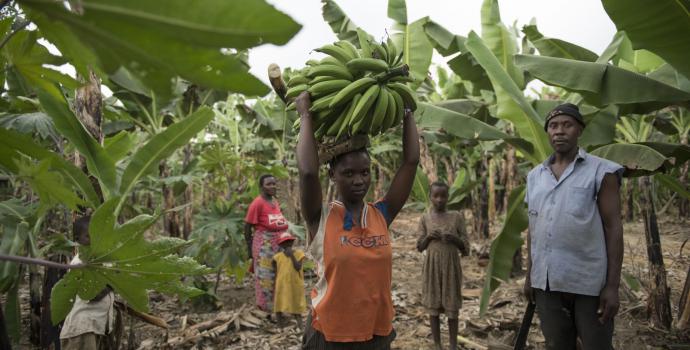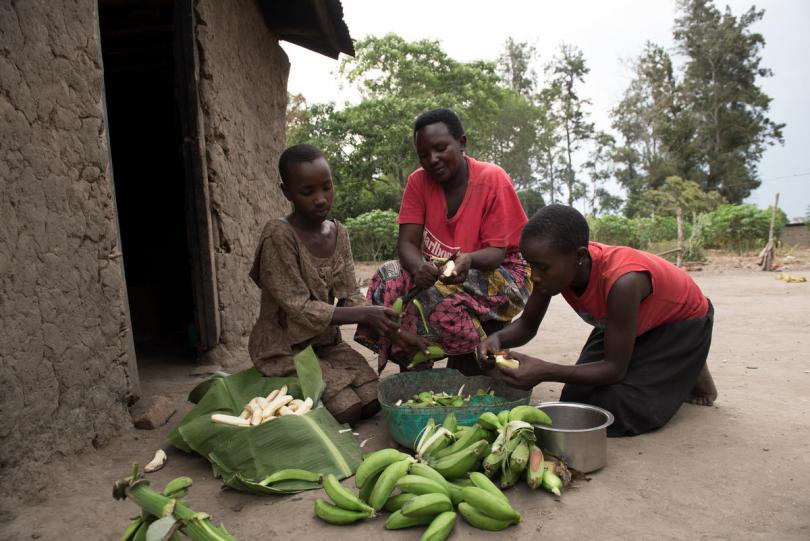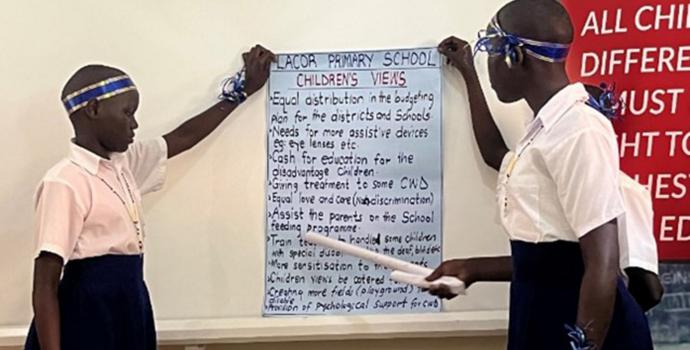Banana farmers find hope after disaster

Richard Mucunguza was at home with his family one evening when disaster struck.
Heavy flooding destroyed his home and plantation and killed many of his animals. Made homeless overnight, they had to set up camp nearby for the next month. Without their sole source of income, the family – Richard, his wife Moreen and their seven children, three of whom are adopted – had to survive on one meal a day.
“We had a lot of domestic animals that perished from the flood because we didn’t know that the floods were coming,” says Richard. “We lost many things. In the home but also outside the home – our crops and gardens all perished.
“It had a bad impact (on my children) because by then six of my children were going to school, but when that happened they left school for some time.”
Richard’s home area in Kasese, western Uganda, suffers frequent disasters –from floods and landslides to prolonged dry spells and outbreaks of crop disease. These disasters – compounded by climate change –are increasing in frequency and severity in many parts of Uganda, and around the world. Yet the flooding took the family by surprise.
Save the Children is working with communities in Kasese to help them be better prepared and able to respond to future disasters. In Richard’s community – and many others – we support an early warning system through the local radio station, which now broadcasts information such as weather forecasts, emerging threats such as army worm infestation, or just useful updates on new crop varieties.
We also worked with the community to build a bridge between two villages.
After the floods, Richard met a Save the Children volunteer who encouraged him to become part of our ‘Model farmer’ project, which provides material support and training to farmers, who then train others in their village. Through this project Richard received banana seeds, to add to the ones he bought himself, and training on soil and how to plant correctly.
“Save the Children taught us to build up some demarcations to plant trees, which would hold the soil when the floods are coming,” says Richard. “We planted some bamboo trees around the river banks and other types of trees.”
Months later he and his family have an established banana plantation that is sustaining them with food, provides a source of income and helps to pay school fees and medical bills for their children.
Richard sells bananas to the local restaurants and with the income the family has built a new home and bought more animals.
The project is helping his life right now, but also helping prepare for the next disaster.
“There’s a community radio they gave us here,” says Richard. “Whenever there is any problem around the village an announcement is passed on to the people in the village.
“When Save the Children came in people didn’t know what to do in the floods and what to do with disaster. (Now) they know if such a thing comes again they can save their lives and then they are ok.”





